The Miss | Issam Freiha and Overtime
Welcome to new subscribers. For those just joining the party, The Miss is a monthly feature in which we ask great investors to tell the story of a deal they misjudged. We unpack the biases that led to their decision and discuss the lessons learned. Think of it as Bessemer's "anti-portfolio" brought to life. This time you'll hear from Issam Freiha, founder and partner of Reshape.
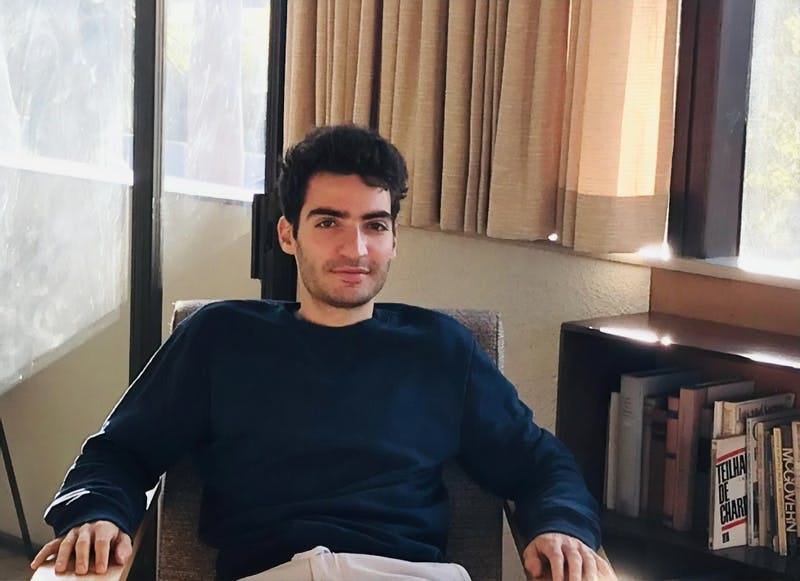
Venture capital is often described as alternately competitive and collaborative. The truth is that it’s both. To put a finer point on it, the word that may encapsulate it best is this: tribal. Each firm and investor within it must build out a trusted circle across the ecosystem, a tribe in which it is safe to share, easy to learn, and advantageous to collaborate.
Sometime in the fall of 2018, Issam Freiha and I met at Blue Stripes coffee, just south of Union Square. I cannot remember who introduced us — how or why we agreed to meet — but within a few minutes of sitting down I had the impression, almost immediately, that Issam was someone whom I wanted to have in my tribe.
Not only is Issam one of the sharpest people I’ve met in venture, he's also one of the country's youngest GPs. Despite that, he’s humble, often quiet and introspective; deeply thoughtful.
That’s not to say that his presence isn’t felt. When he starts to explain a new idea there's a palpable energy, an electricity in his words that marks him out as someone with a truly vigorous mind. He is what I would call an “athletic thinker,” unpacking complex and wide-ranging ideas with a robustness and detail that can catch you off-guard.
Perhaps that's something of Issam’s secret, his superpower: he makes intensity look easygoing. Once you have understood that, it's not surprising to discover that he spends his spare time training for Ironman races.
Over the past two years, it has been a pleasure to come to know him. To feel as if he is not just a collaborator or colleague, a member of a shared tribe, but a friend. I’m sure you’ll enjoy his thoughts on building Reshape, finding his first win, and missing out on a major exit.
Brief
Building a venture fund around the physical world
The long shadow of WeWork
Winning allocation in EquipmentShare
Overthinking a media behemoth
Missing out on a nine-figure exit
Peter Thiel’s particular gifts
The unexpected genius of Starbucks
On building Reshape
The thesis
We’re creating an investment platform for the “built world.” That includes software companies that change the way we interact with physical spaces — whether horizontal in application or focused on a specific vertical — and best-in-class brands. We’ve been lucky to invest in companies like Flexport, UiPath, Capsule, Sweetgreen, Sonder, Recess, Eden, Civil Maps, Neighborhood Goods, and many others.

The platform
Since we’re focused on such a specific thesis, we’re able to bring a unique value proposition to the table. Our LPs are, for the most part, in the real estate industry. That can be a huge add for companies that touch the physical world. Our platform team is focused on getting our LPs to adopt portfolio companies’ software, identify promising physical locations for our founders to occupy, and provide alternative financing for offline businesses that don’t need more venture funding to scale.
The effect of WeWork on the space
Look, WeWork could have gotten it right. It was a venture scale business that got over its skis, but it had a real value proposition. It changed the way people think about work and work spaces.
We don’t think it makes sense to shy away from those businesses as a blanket rule. For startups that don’t have zero marginal cost structures, what does make sense is making sure the underlying economics work. You can only grow as fast as your internal rate of return. Outpacing that growth means you're constantly raising capital, diluting shareholders, and setting a higher bar for your next raise. That's the death spiral WeWork found itself in.
On contrarian investing
I think about Warren Buffett's quote, “Be fearful when others are greedy, and be greedy only when others are fearful.” Right now, venture investors are terrified of four-wall businesses. But the past few years have seen a renaissance in the types of companies emerging in the retail space.
Hybrid models are increasingly part of that. For example, we just invested in The Well, a new fitness and wellness location in the city. While some of their growth is predicated on physical space, we think there are considerable opportunities in CPG. Bundling the two together adds a different dimension to the business and brand they can build.

Ultimately, we believe there will continue to be massive consumer retail businesses. The best is yet to come.
The “built world” in the time of coronavirus
I don't want to pretend to know how bad the situation will be for our portfolio companies, or how long it will last. What I know for sure is that our CEOs are entering wartime. We’re expecting lost revenue, layoffs, and valuation cuts. But businesses with strong balance sheets and resilient management will weather the storm. I also have no doubt that some of our portfolio companies will be looking for opportunities to consolidate their sectors, especially those that saw a rise in competition before the virus. Finally, we’re heading towards an unprecedented national reset across real estate verticals. That makes it a particularly attractive time to start a business in the space.
The first win
Meeting EquipmentShare
We were just getting started as a fund. At that point, we were still generalist in our approach, investing across sectors, writing small cheques. There are huge advantages of being small in venture because it’s much easier to get into competitive deals. It was at that time that another seed fund told us about a company they had funded. It was called EquipmentShare, a marketplace for commercial construction machinery.
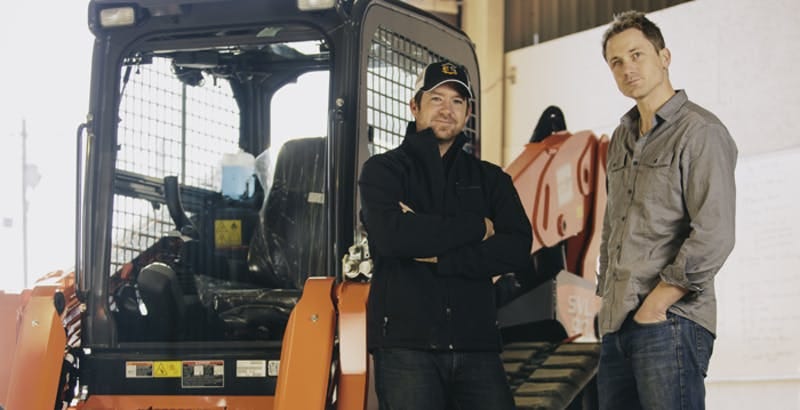
A hot deal
It was the company’s Series A and they were already a coveted commodity. Insight Venture Partners had backed them, the team had gone through YC, the business was scaling incredibly quickly, and there was a clear path for future growth. When you see a deal like that, it quickly becomes a no-brainer.
Making a decision
You know, it’s interesting, there was much more work we had to do to get access to the round than to get conviction. In truth, with the explosion of specialized funds like ours, that's pretty much the reality of venture today. In this case, we felt strongly that EquipmentShare had the potential to be a breakout business and so within a couple of days we committed and said we’d take as large of an allocation as they’d give us.
Getting access
Even though one of EquipmentShare’s seed investors had introduced us, we still had to convince them we’d be a good addition to the round. We did that in a couple of ways. First, we did an insane amount of work before meeting the team. Learning the space and understanding what they might need so we’d be as prepared as possible for a meeting. Beyond that, we also opened up our LP base to the seed investors that had put us in touch, showing that we had a cadre of strategic backers that would meaningfully help the company in the long-term, and potentially finance future rounds. Thankfully, it worked.
(Ed: the company has gone on to raise growth rounds from Insight, Romulus, and YC)
The Miss
The first miss: overthinking Overtime
Talking about this one still hurts today. We met the team early through a pre-seed investor and got on incredibly well with the founders, Dan Porter and Zack Weiner. We were so impressed with their understanding of the customer base, the demographics of the market they were serving, and their sense of what those people wanted. They understood that millennials and Gen-Z would want to engage with sports and fandom in a new, more interactive, more social-first way. That first meeting, we were blown away.
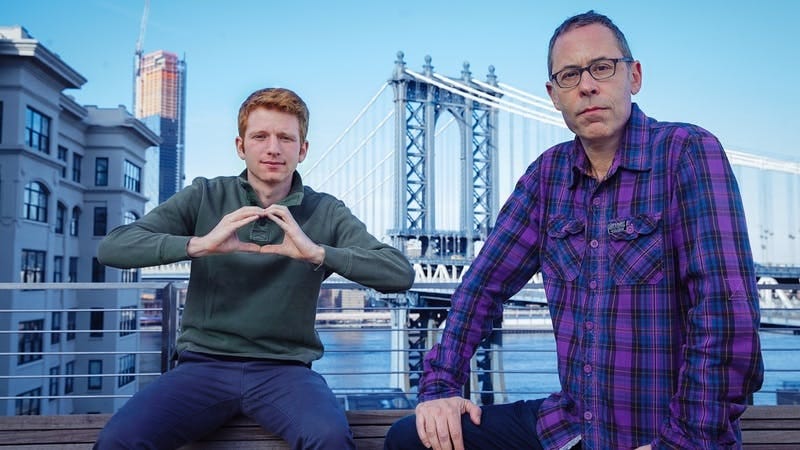
The media myth
The hesitation was around the business model. It was such a great team with so much energy and we really felt that. But we got hung up on the fact that this was a media business, somewhere it’s been historically hard to get venture returns. Even some of the most iconic media businesses like Business Insider and Huffington Post that have won millions of readers exited for sub-venture scale returns.
We spent so much time thinking about that, overanalyzing the market, and modeling out what an outcome could look like that we missed what was right in front of us: an incredible founding team with deep insights about a market and a unique idea of how to serve that market’s needs.
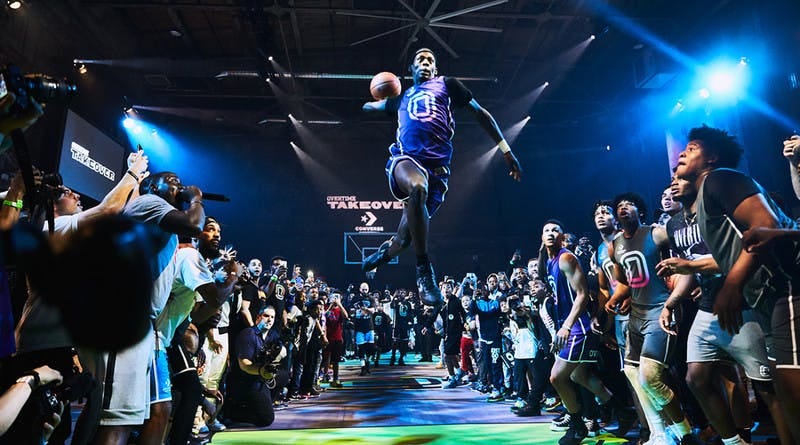
The lesson
The lesson for us — and this is something we’ve had to learn time and time again — is that the most valuable thing you can do as an investor is spend more time with the founder. Understand the people behind the business, how they think. Of course, it’s important to dig into the spreadsheets, get into the weeds on the economics, think about the business in the abstract, but I think of it like an 80:20 rule. The best way to do my job is to spend 80% of my time getting to know a founder. It takes an insane amount of grit and energy to transform a Powerpoint into a business, especially when you know in advance that the risk of failure is huge. There's no better way to understand if a founder is up for that challenge than by spending a lot of time getting to know them personally and getting into the weeds of their day-to-day business. The remaining 20% I spend with my mind in "hedge fund" research-mode.
That’s what we got wrong here.
(Ed: Overtime announced a Series B led by Andreessen Horowitz and Spark Capital in 2019)
The second miss: fearing the frontier with Touch Surgery
Co-founder Dr. Jean Nehme is Lebanese, like me. I got to know him through mutual friends and it was clear that he was an incredibly bright, scrappy guy with a vision to help surgeons prepare for the operating room by running through procedures digitally first. We met Jean before their Series A and really liked the core product. We were also impressed by the user base they’d amassed, which was in the millions at the time.

Uncertainty over monetization
We got stuck on monetization and vision. The Touch Surgery app was completely free at that point, and there wasn’t a fully refined strategy for the next phase of growth. To be honest, I think it was something that the founders were still thinking through themselves, which is reasonable.
Jean also had a truly futuristic vision for the company. He saw surgery becoming increasingly automated, handled by robots. While that was fascinating to think through, we worried about the sort of frontier technologies that might be needed to make that vision manifest.
The lesson
Earlier this year, Touch Surgery was acquired by Medtronic. The terms were undisclosed, but it was a significant, meaningful exit. The error we made, I think, is that we underemphasized how remarkable it was that this company had built a truly viral product in the healthcare space. That just doesn’t happen often. Even if monetization hasn’t been figured out yet, when there’s such clear product-market fit, when a brand has been built in a difficult to penetrate sector, that deserves a huge amount of credit. We should have paid more attention to that.
Digressions
A book that changed his life
When Breath Becomes Air by Paul Kalanithi. Every single page in that book is an emotional rollercoaster, it’s really stuck with me. I was going through a bit of a quarter-life crisis at the time — examining how I wanted to find meaning in work, how I wanted to build strong relationships with my family — and reading that book was a kind of enlightenment. I can’t recommend it enough.

The theme song for his life
“Supermassive Black Hole” by Muse. I can’t remember which FIFA game used that track — maybe 2007 or 2008? I must have listened to it hundreds of times, I really got hooked. It’s also the song that made me a Muse fan.
His investing hero
Maybe this is a basic answer, but I’m a big admirer of Peter Thiel. The way he thinks — about investing or anything else — is so unique. In particular, he has this rare ability to bring two opposing ideas into synchrony, to lay out the framework of an issue, considering all sides. He tends to be incredibly thoughtful about abstruse or hard-to-talk about topics, and I think that’s valuable in an incredibly polarized, often biased world.
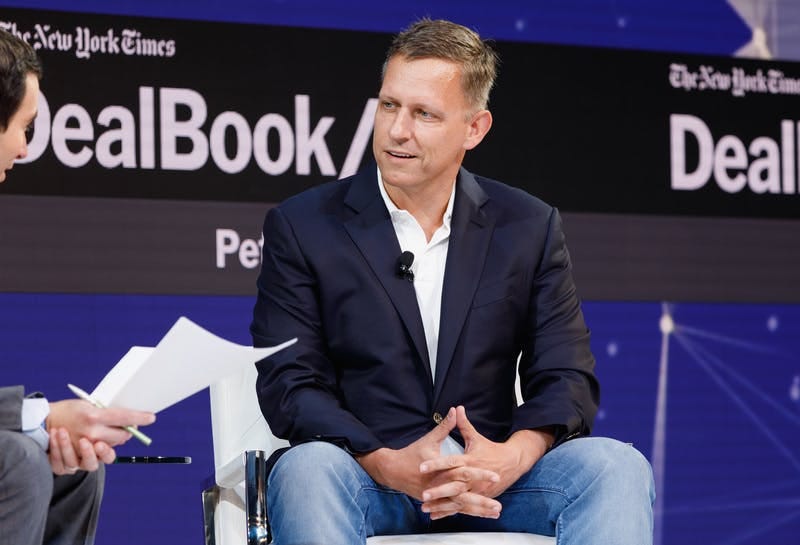
The last great app he downloaded
I hate to say it, but the Starbucks app. Seriously, it’s phenomenal, it’s really phenomenal. We’re incubating a company in the coffee space so I’ve spent some time studying the business, and I was surprised by just how tech-forward they are. They have a huge engineering team, and the UX on the app is flawless. It’s a 10x improvement in your ordering experience.
Where he sees opportunity
Very few people believe there’s a new wave of consumer companies, a new wave of four-wall companies, on the horizon. A lot of that is because of what happened with WeWork. The response from VCs to that failure has discouraged entrepreneurs from starting companies in the space.
We don’t think it makes sense to close your mind to the sector. We’re pushing forward with a lot of incubations, taking cues from some of the brands succeeding in China, and elsewhere in Asia. For example, Kopi Kenangan, a coffee brand in Indonesia, is one of the fastest-growing consumer companies in South East Asia. We think there’s a lot to learn from them, and others, that we can bring to the US.


